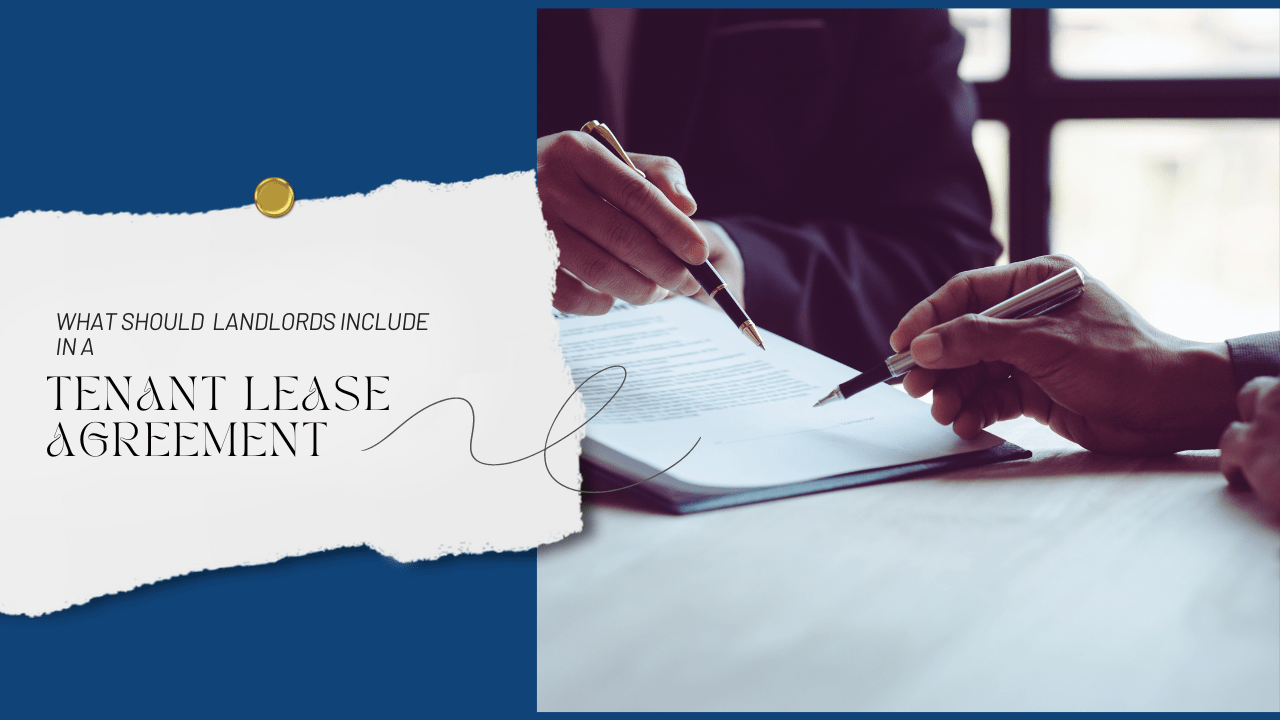One of the most important documents that rental property owners in San Jose need is a lease agreement. The lease is a legally binding document that outlines the terms and conditions of the rental agreement between you and your tenants. It puts into writing the agreement that you will provide a safe and habitable home for your tenants and those tenants will pay the required rent every month.
There’s a lot more to a lease agreement than rent and habitability. It’s essential that you include all necessary components to protect your investment and minimize any potential legal issues. In California, tenants have a lot of rights and protections. Your lease is your best protector when it comes to your own rights and the responsibilities of all parties bound to the contract.
Here are some of the most essential things you need to include in a San Jose tenant lease agreement.
Identify Responsible Parties
The lease has to do something very basic: identify the landlord and the tenant. Every lease must state who is renting the property and who owns the property. You’ll need a lease agreement that identifies the property owner, the tenants, and if applicable, the San Jose property management company acting on the owner’s behalf.
If you are working with a property manager, let them handle the lease. You can be completely hands-off.
List all the property residents, including every adult who was screened and is financially responsible for rental payments and the property care. The lease should have contact information for these tenants as well, and while minors do not have to be listed, you may want to reflect how many people total are living in your property.
Establish Lease and Renewal Terms
If you’re renting out a short term property or a vacation home, you’ll worry less about a lease agreement and focus on what you need to include in a rental contract. For a long-term residency, you’ll need a lease agreement with a specific start and end date. You’ll need instructions on what happens at the end of the lease term; whether it’s automatically renewed, negotiated, or if it defaults to a month-to-month arrangement.
Here’s what we recommend in how you address lease terms and renewal options:
State the length of the lease agreement. You want to make sure it’s clear when the lease begins and when the lease ends. Include a start date and an end date.
Indicate how the lease is renewed or ended. Include some language around what happens at the end of the lease term. How much notice must the tenant give before vacating?
Establish move-out and renewal instructions in your lease agreement, and talk about this with your tenants so you’re sure they understand them.
Typically, 60 days of notice is required.
Rent and Security Deposits
Your lease agreement needs a rent collection policy. This will be one of the most important sections of this document because collecting rent on time is critical to the success of your San Jose investment property.
Not only do you need your rent collection policy, but also the basic information around rent.
Your San Jose lease agreement must reflect:
How much rent is due.
When rent is due.
Information around grace periods. When is rent officially considered late?
Late fees and other penalties for late rent.
Methods of rental payments that are accepted. This might include online payments, checks, money orders, etc. Be specific in the lease about what is accepted (wire transfers) and what’s not accepted (cash).
Security deposits must also be part of the lease agreement. You’ll want your lease to reflect how much was collected. Remember that California limits what you can take from a tenant as a security deposit to the equivalent of two months’ rent for an unfurnished property.
Outline all Maintenance Responsibilities
Tenants may move in assuming they have no maintenance responsibilities whatsoever, and that’s why it’s important that your lease outlines what you expect from them.
A lease will note who is responsible for what when it comes to maintenance, upkeep, and cleaning. This will eliminate any confusion with your tenants about what they’re expected to be doing and what they can expect you to take care of. The biggest questions typically revolve around landscaping, especially in a single-family home. Who mows the lawn? The question must be answered in the lease.
Include your maintenance reporting process in the lease, too. Should tenants call you or put something in writing? What’s the procedure if there’s an emergency?
Include Rules and Regulations in Lease Agreements
The lease should also include a list of rules and regulations that tenants must follow, and this is where you can be as detailed as you’d like. Include policies around:
Pets
Smoking
Guests
Parking
Quiet hours
Include rules for yourself, too. How much notice will you be giving to tenants before you enter the property for maintenance or inspections?
Properties in an HOA will need an entire addendum to reflect those rules and regulations. Make sure your tenant has a copy of those HOA bylaws and rules. Residents cannot be expected to follow the HOA rules if they’re not aware of what they are.
Rent Stabilization and California Laws
Your lease agreement is also required to talk about rental increases. Since The Tenant Protection Act of 2019 was passed, landlords are now required to include information on the rent control law in their lease agreements. You’ll have to explain whether your property is included or exempt from the statewide rent control restrictions. Your lease must also note how often you can raise the rent and how much notice you’ll provide before the new rent goes into effect.
Most California leases will require some specific addenda, based on changing laws and local requirements. Cover yourself by referencing mold, lead paint, bed bugs, and the “clear and reasonable” warning that you must provide tenants about hazardous materials and chemicals per Prop 65.

This reflects the need to have a state-specific lease. Don’t pull any template off the internet. You need a lease agreement that’s legally compliant and enforceable in San Jose.
We can put together a strong lease agreement for your property. If you’d like to learn more, please contact us at Cornerstone Property Management.





